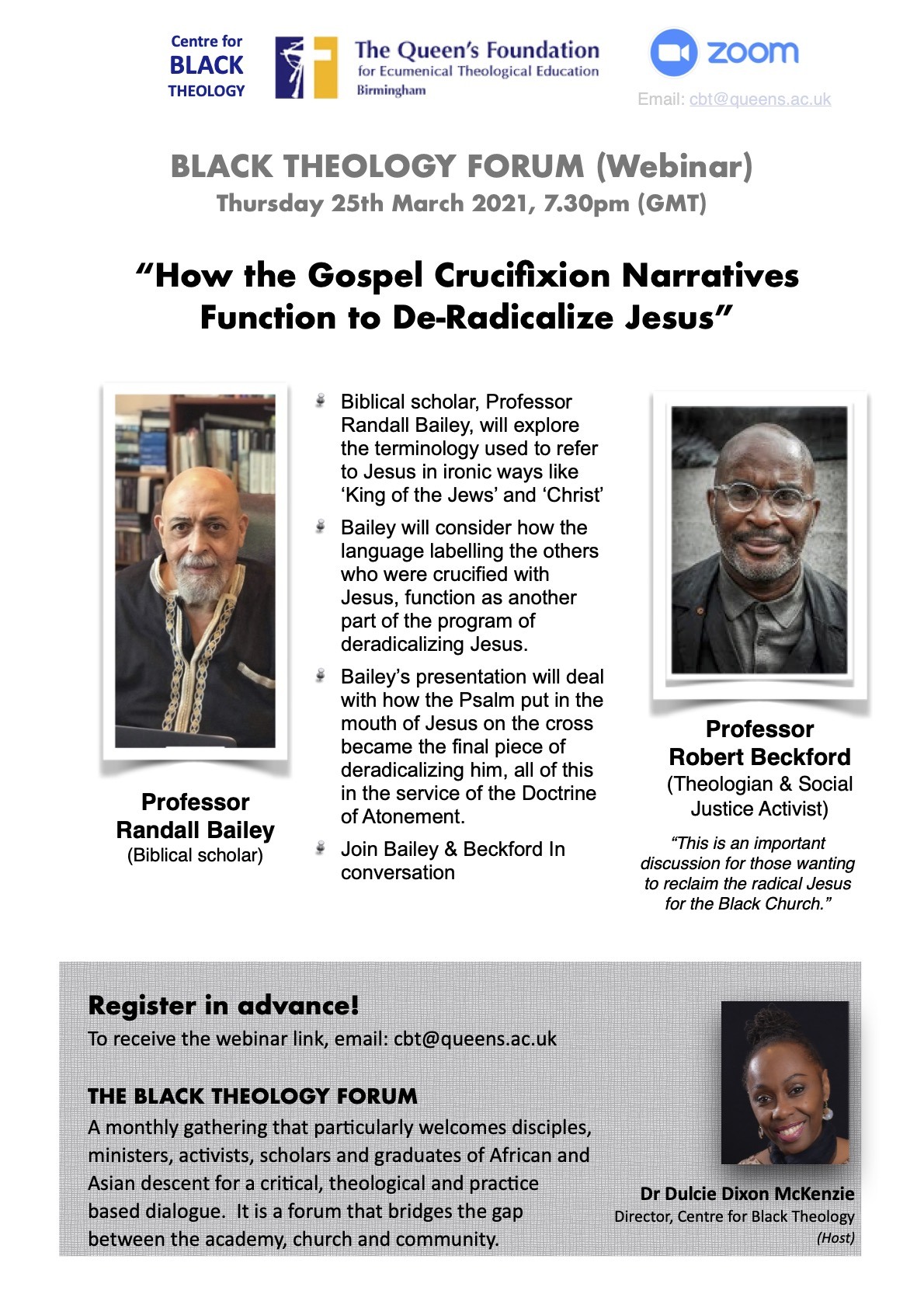Share this article with your friends
Click on the links below to share this article on social media.
Centre for Black Theology: Black Theology Forum

- To attend, please register in advance: click here!
- For more information email: cbt@queens.ac.uk
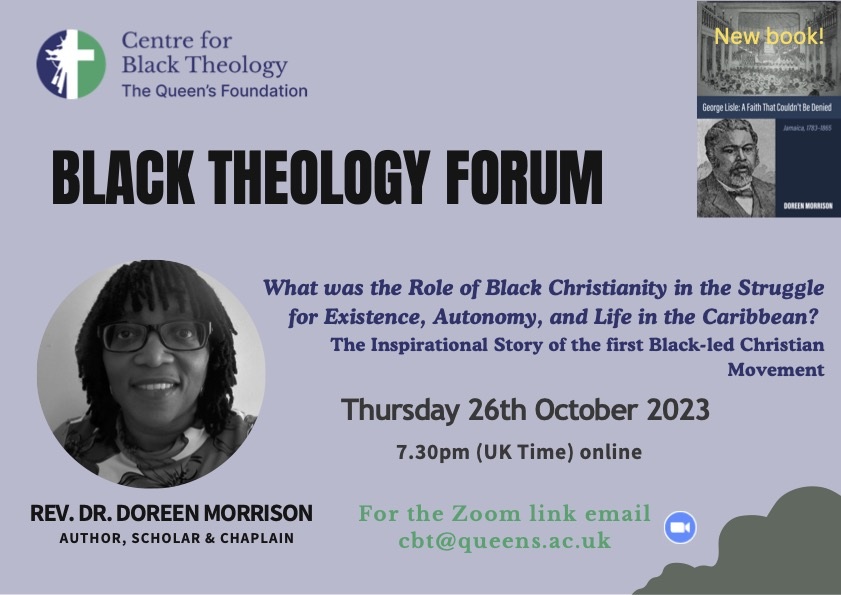
What was the Role of Black Christianity in the struggle for Existence, Autonomy, and for life in the Caribbean? The Inspirational Story of the First Black-led Christian Movement
Rev Dr Doreen Morrison will give a presentation based on her latest book, ‘George Lisle: A Faith That Couldn’t Be Denied, Jamaica 1783 -1865,’ which will be an introduction to the first Black-led Church in Jamaica, ‘The Ethiopian Baptist Society,’ (later known as the Independent Baptist Church). Interrogating specific events, over three generations, it will demonstrate how the movement negotiated a system of oppression and brutality, to not only introduce Christianity to a disenfranchised African majority, but led the fight for emancipation and freedom. Providing context for their struggles I will introduce you to their pioneering leader, George Lisle, a once enslaved African American, some of his cadre of leaders, their theological perspective, and the everyday women and men, who having received the message of salvation, for over three generations negotiated their faith in a climate of enslavement, persecution and oppression. This presentation will briefly look specifically at their three main struggles; the struggle for the right to exist as a movement, cultural and theological autonomy, and for life itself, which culminated in the infamous genocide carried out in Morant Bay, in 1865.
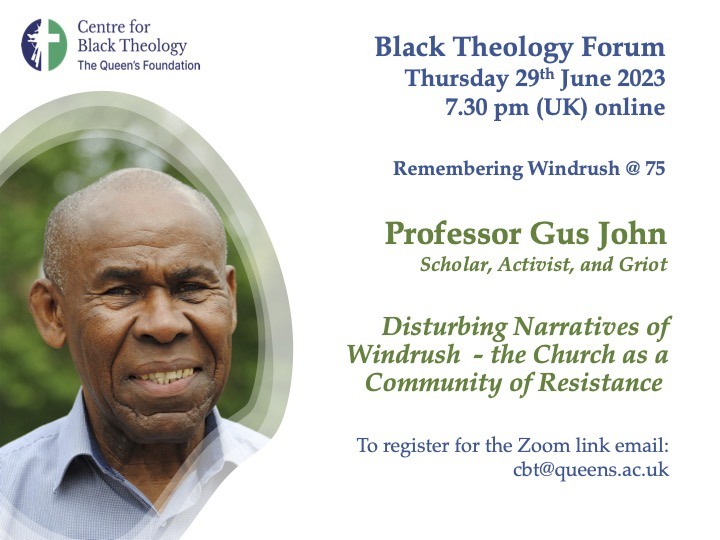
Professor Gus John debunks the notion that the arrival of the Empire Windrush marked the beginning of the evolution and growth of multiracial Britain and the claim that the ‘Windrush generation’ rebuilt post-war Britain and made it prosperous again. It is a narrative that displaces the history of those settled black communities who struggled against racism and marginalisation in Britain since the 19th century, at least, and those who fought for national independence of the Black Commonwealth while building a global Pan-Africanist movement right here in Britain. Worse yet, the Windrush narrative represents a settlement with the British state that is akin to the failed TuTu-led Peace and Reconciliation project in unreconstructed apartheid South Africa.
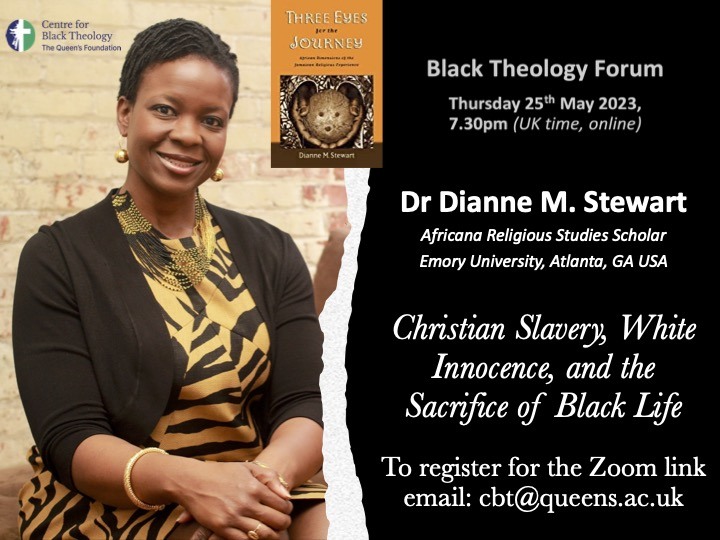
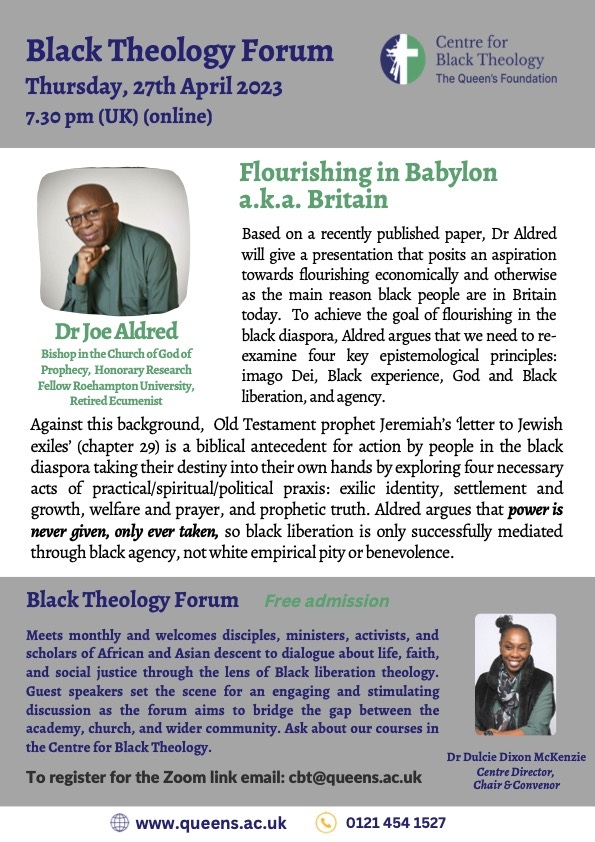
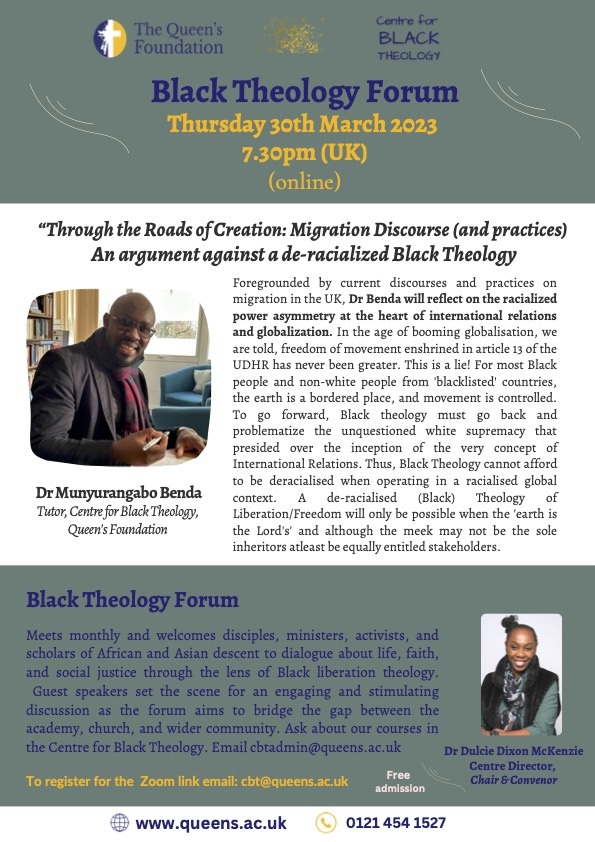
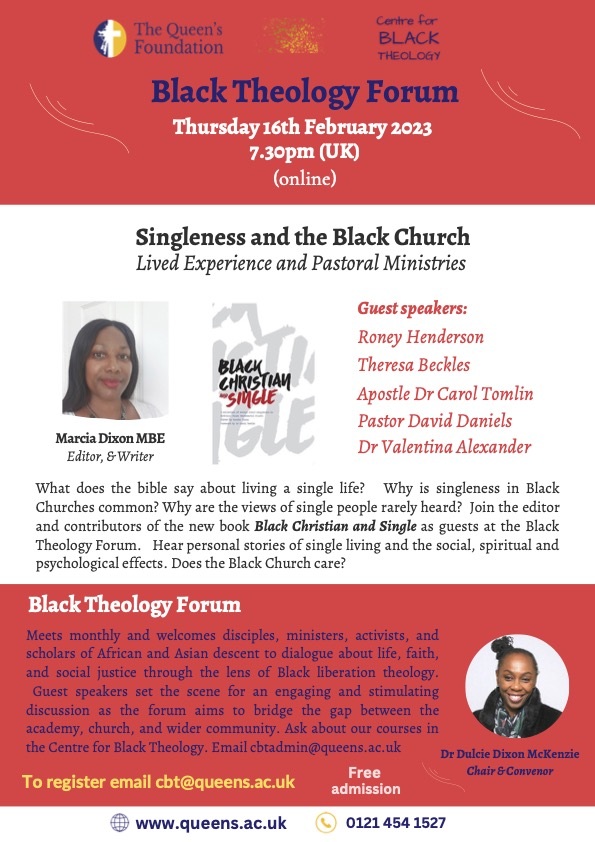
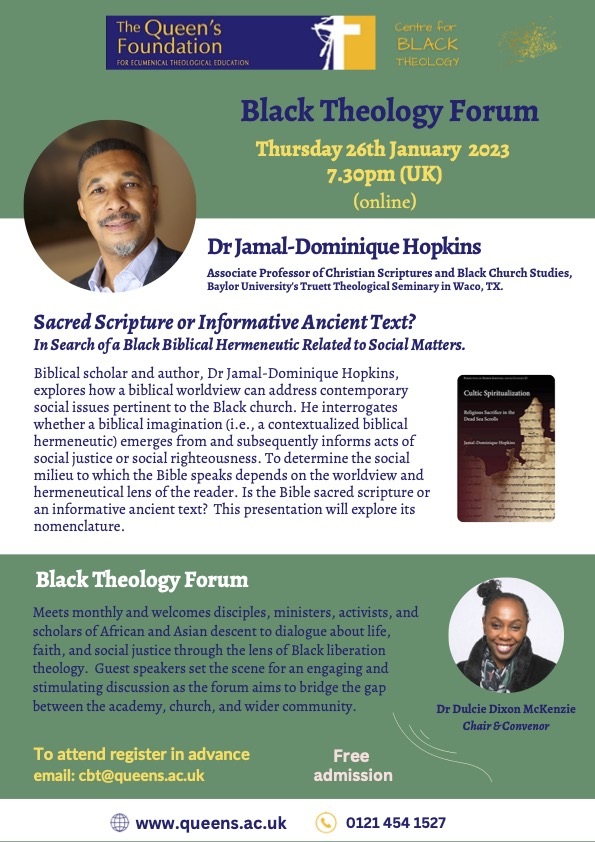
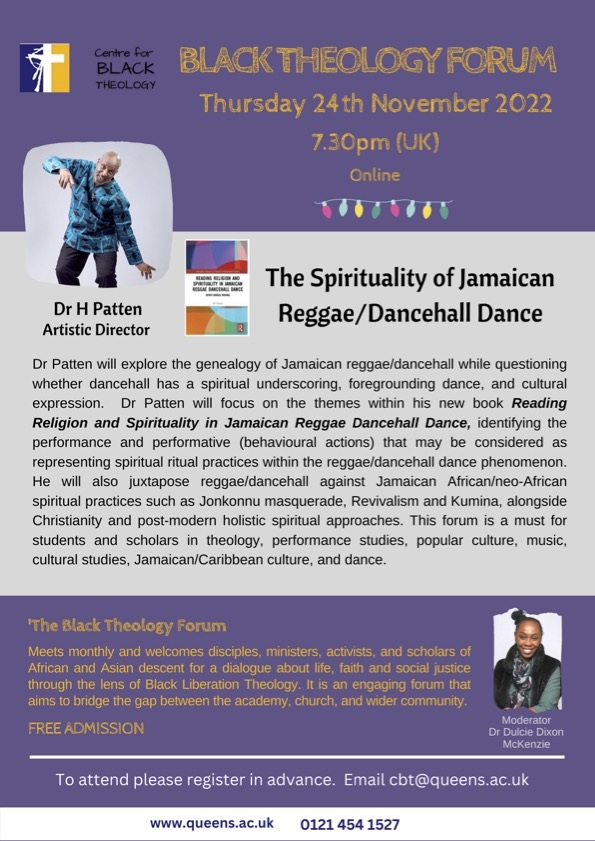
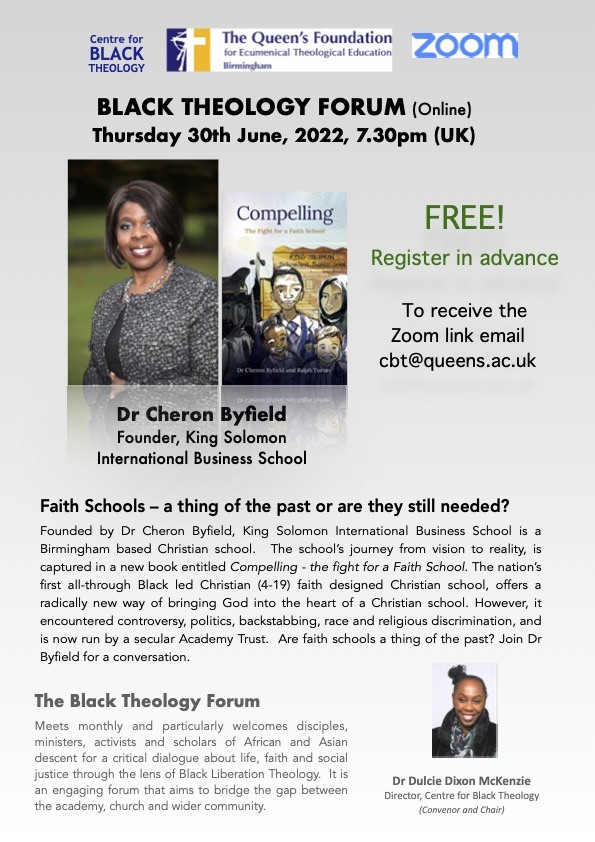
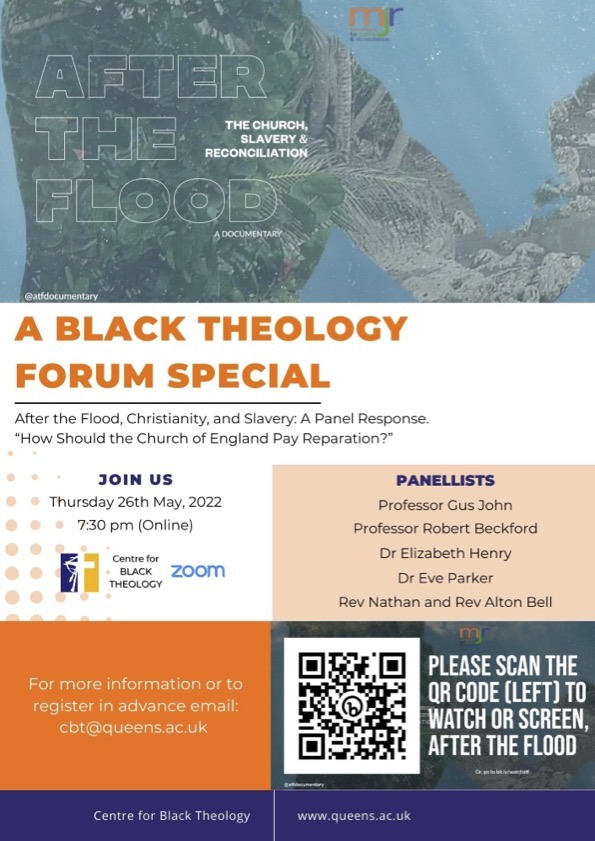
Black Theology Forum, Thursday 26th May, 7.30pm
Panellists: Professor Gus John, Professor Robert Beckford, Dr Elizabeth Henry, Dr Eve Parker, Rev Alton Bell and Rev Ron Nathan
Chair: Dr Dulcie Dixon McKenzie
After the Flood, The Church, Slavery and Reconciliation - a panel response.
Discussion question: How should the Church of England pay reparation?
An online discussion about the significance of the new film documentary ‘After the Flood’ that aims to be educational and redemptive, addressing the historical neglect of slavery in British Christian history. The film looks at biblical principles for racial reconciliation in our churches today, and a pre-requisite for British churches to confront slavery, necessary to overturn injustices resulting from its legacy.
Black Theology Forum, Thursday 26th May, 7.30pm
Panellists: Professor Gus John, Professor Robert Beckford, Dr Elizabeth Henry, Dr Eve Parker, Rev Alton Bell and Rev Ron Nathan
Chair: Dr Dulcie Dixon McKenzie
After the Flood, The Church, Slavery and Reconciliation - a panel response.
Discussion question: How should the Church of England pay reparation?
To find out about our courses, email cbtadmin@queens.ac.uk or see here!
To contact the Centre for Black theology, email cbt@queens.ac.uk
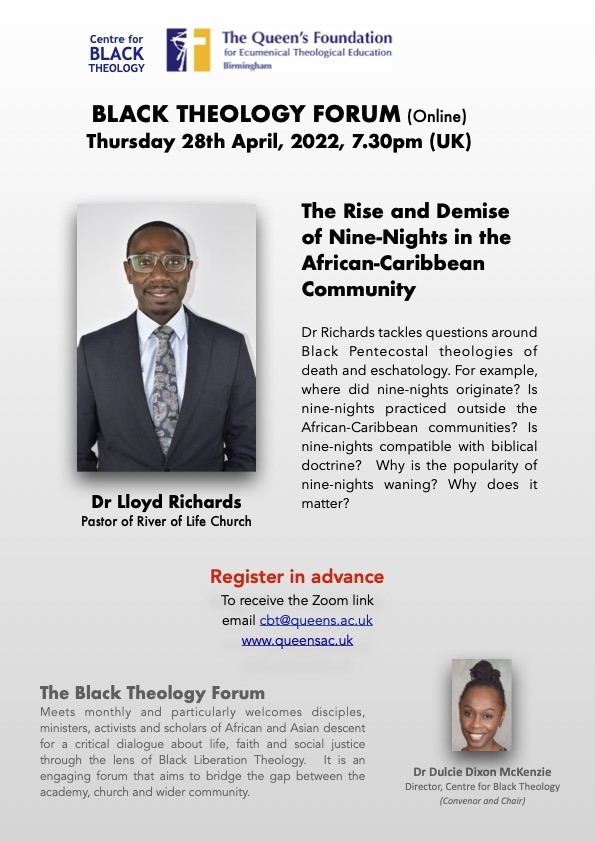
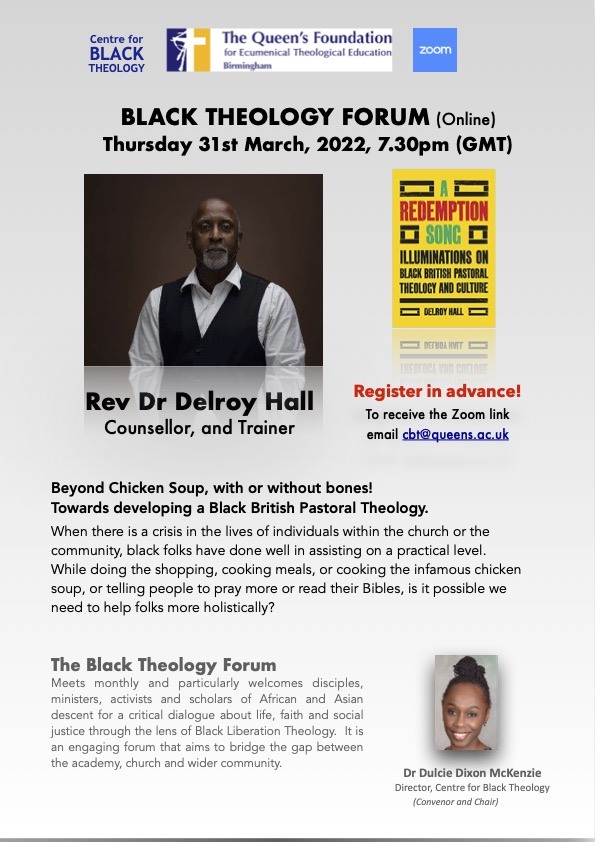
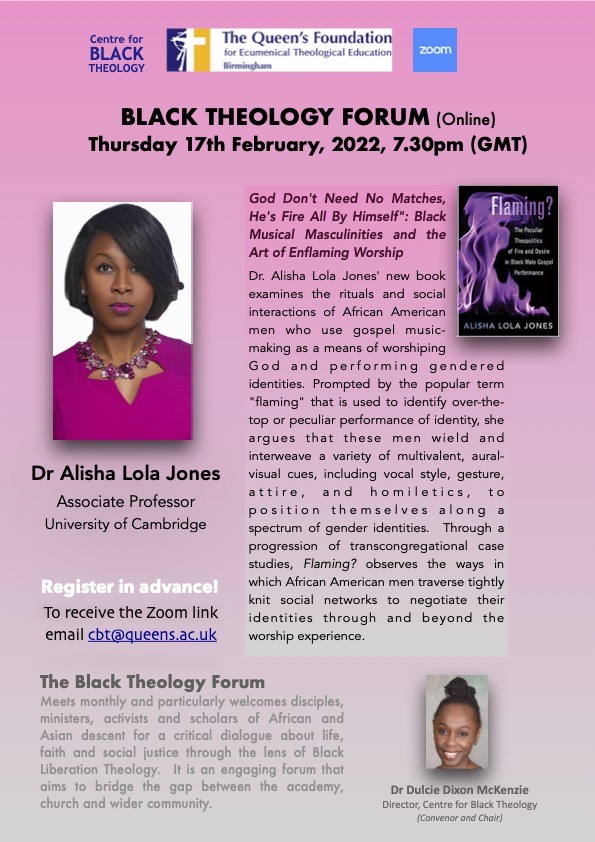
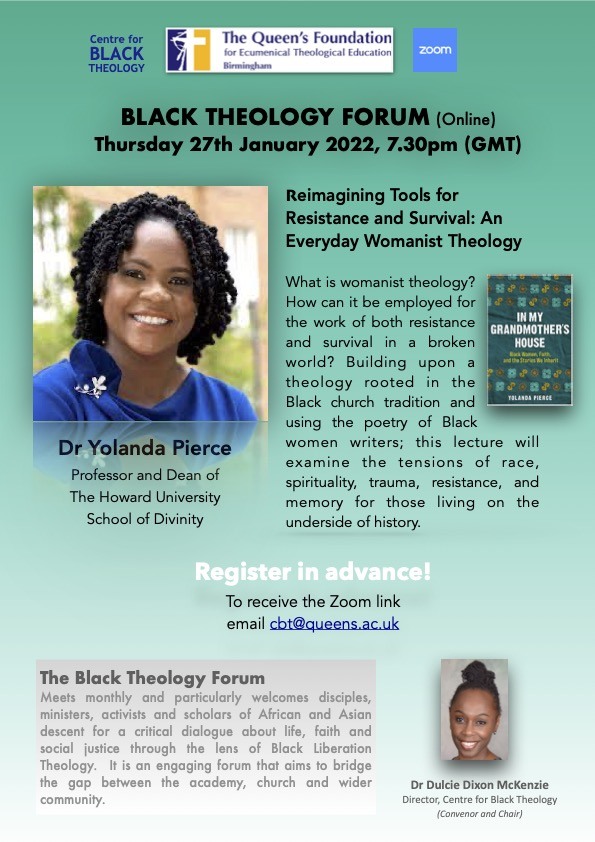
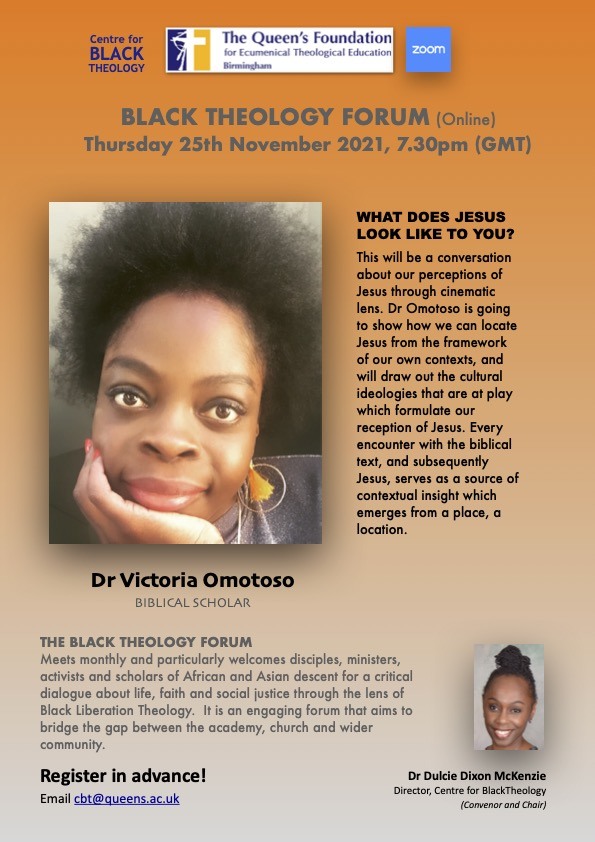
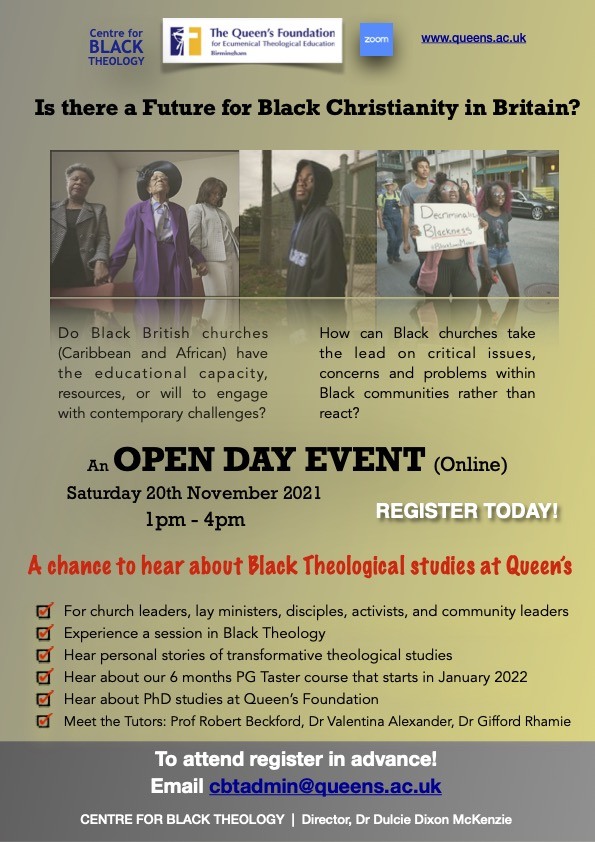
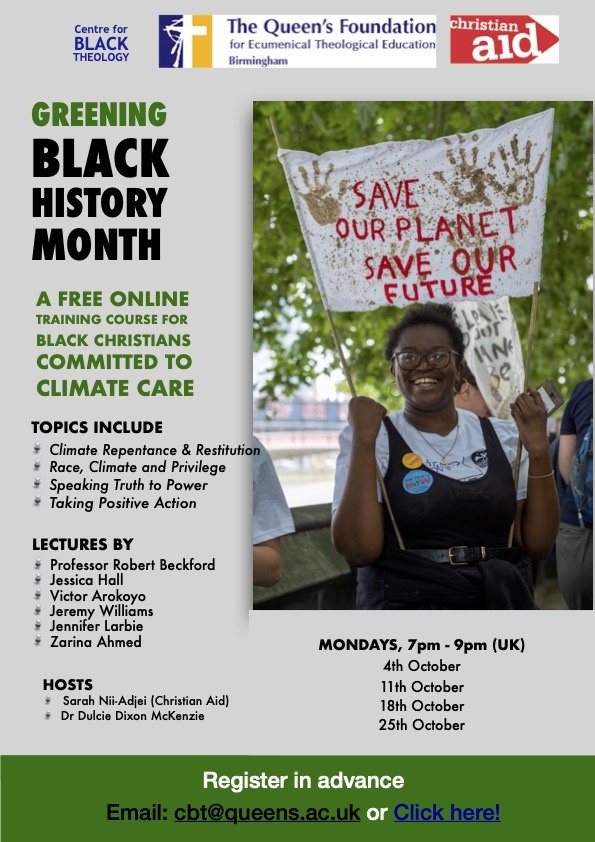
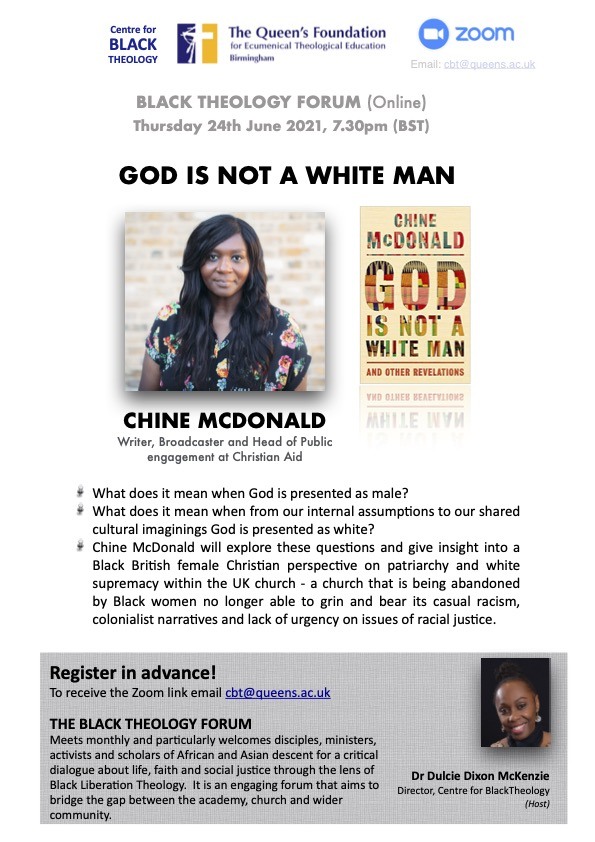
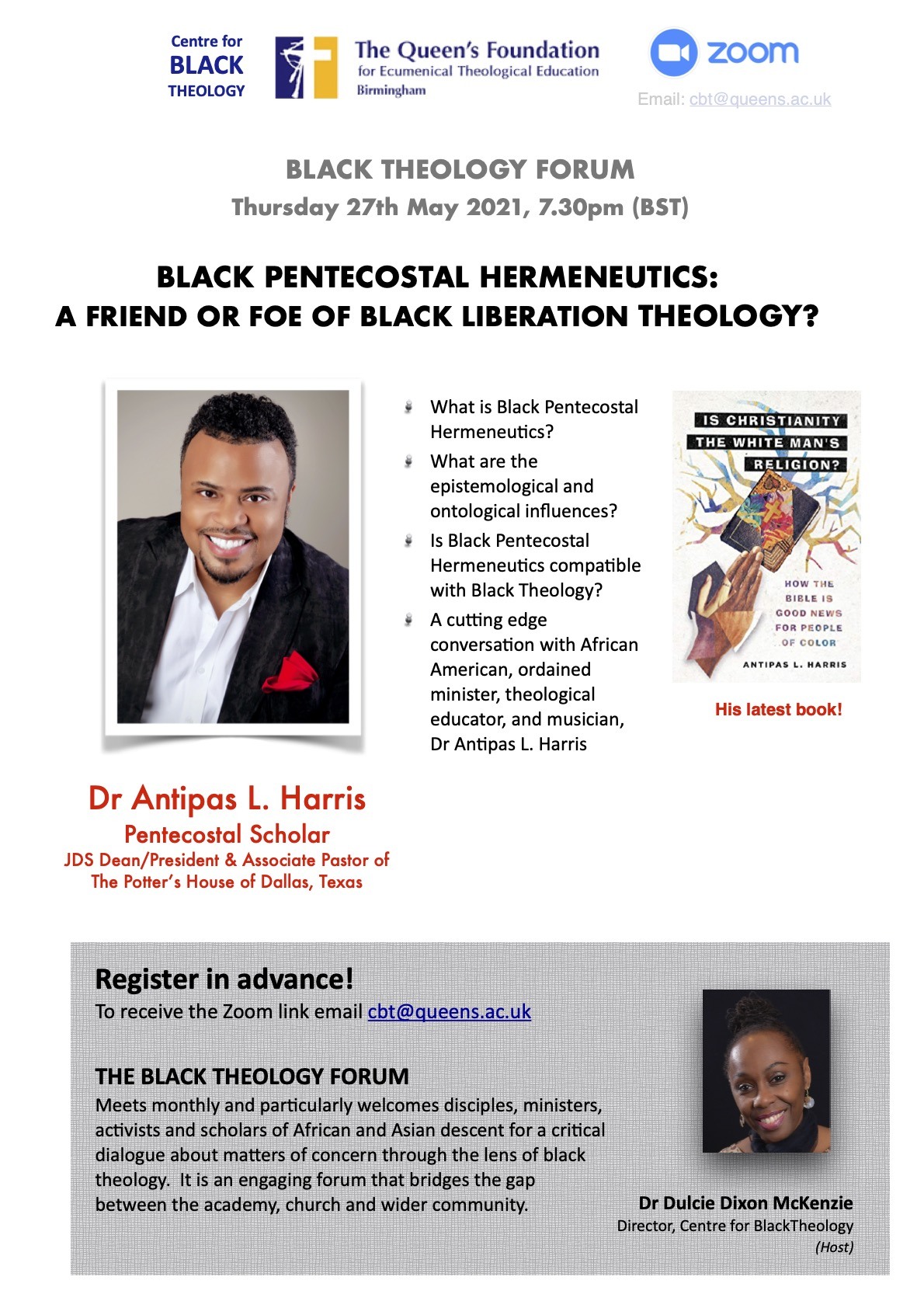
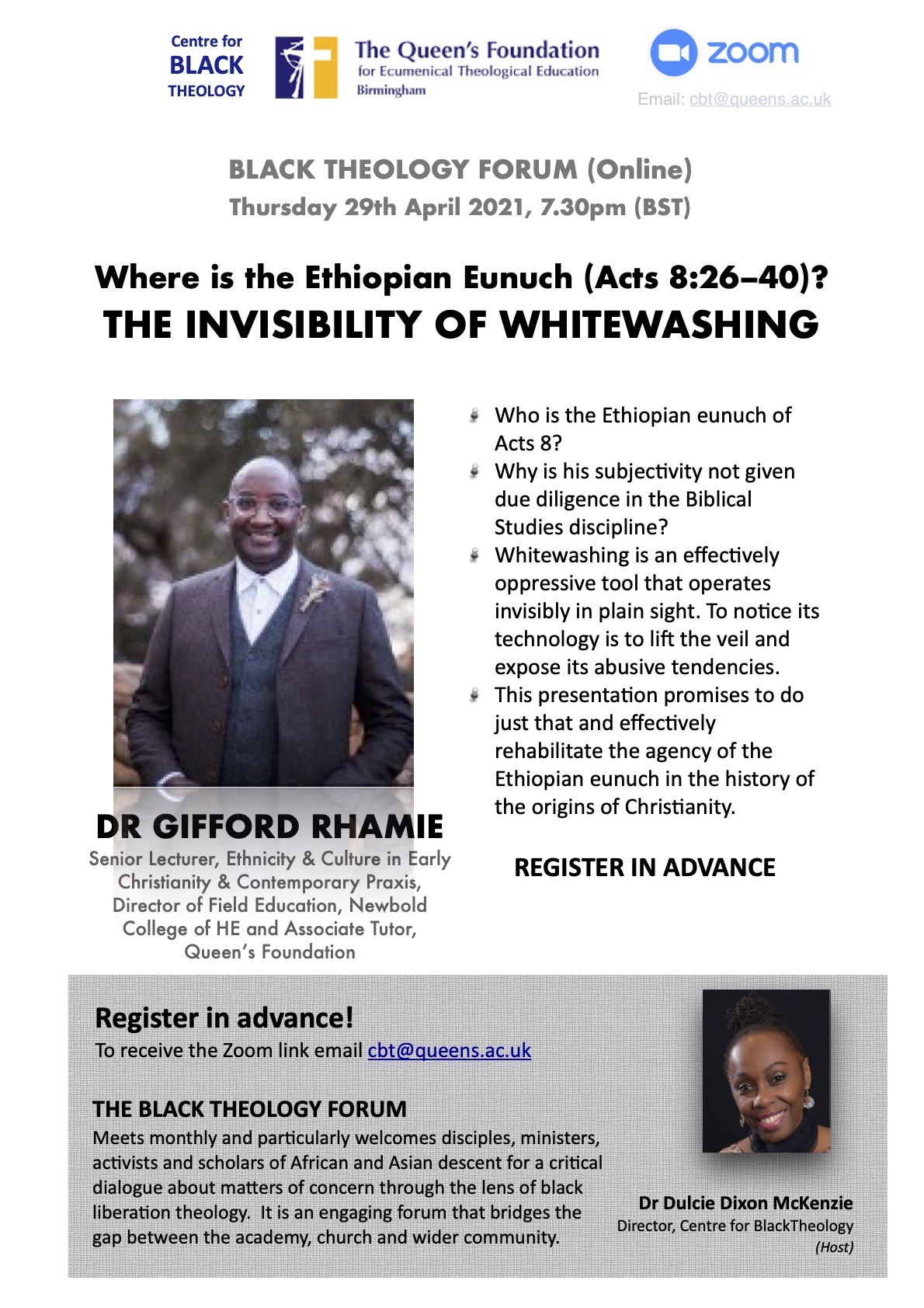
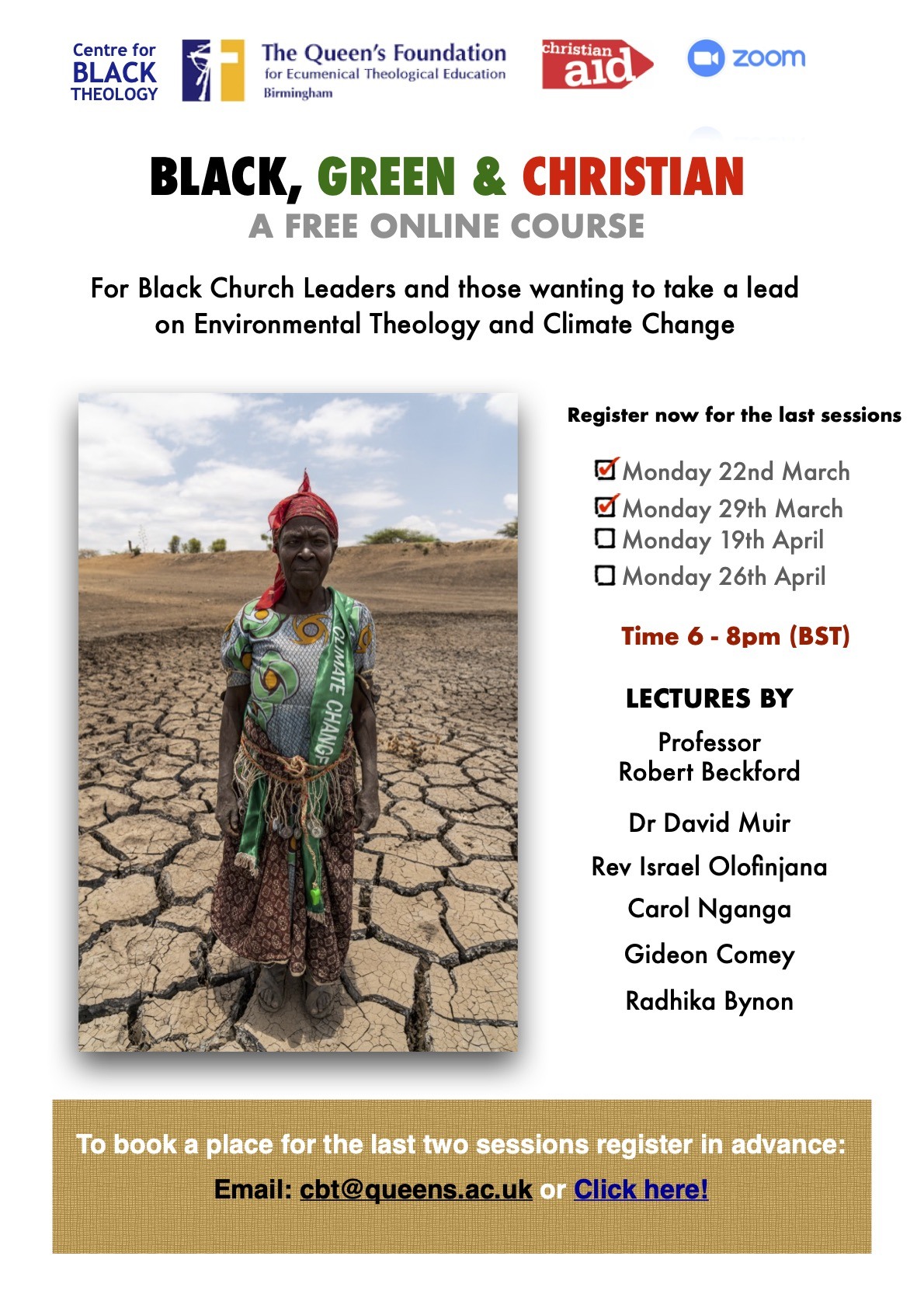
A free four-week online course that explored the theology and practical steps for more engagement in environmental justice. Four lectures that were geared towards action amongst Black church leaders and activists.
